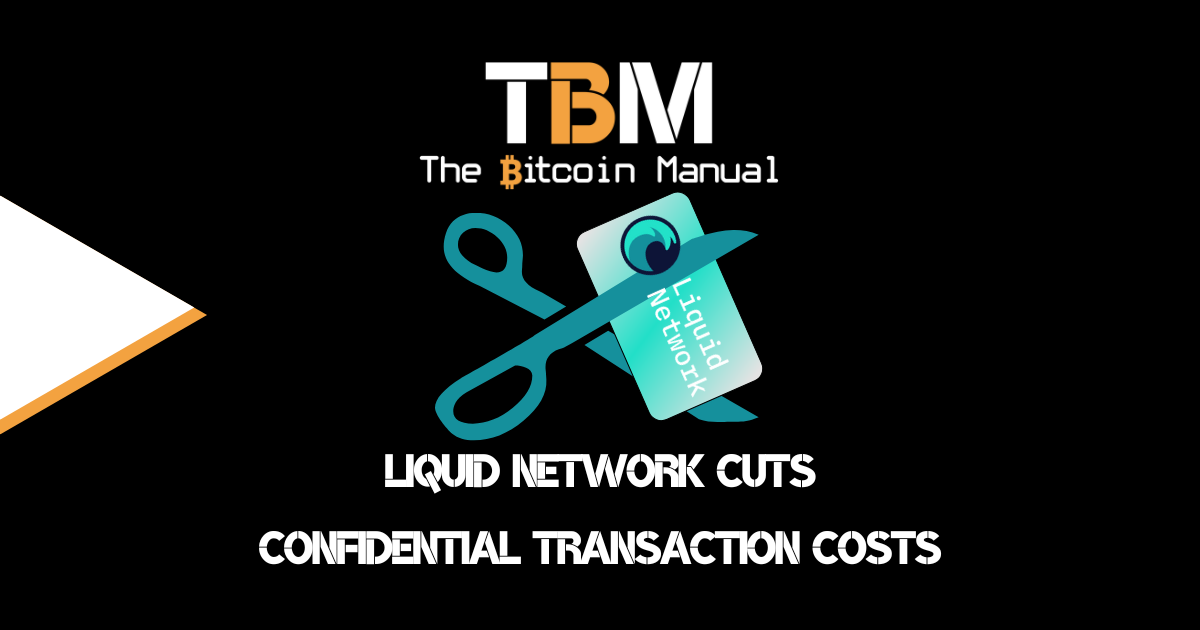Bitcoin is a grassroots movement; what began as an alternative payment system run on cryptography enthusiasts’ computers has blossomed into a multi-billion dollar network that clears billions in value daily. As more value is stored in the network and transferred worldwide, more people can tap into that liquidity to fund projects, circumvent financial repression and take control of their finances and, by extension, their futures.
While bitcoin is still in an early stage of monetisation and trying to establish itself as a reliable store of value, others worldwide are already using it as a payment method and settling transactions in their local area.
These areas are often referred to as a “Bitcoin circular economy”, or BCE, that runs on principle using bitcoin as their form of payment and unit of account. Instead of asking permission to transact or using custodial rails with third-party financial institutions that operate in tandem with State authorities, circular economies leverage bitcoin to trade value for goods and services.
“Circular” refers to how the bitcoin is recycled inside the ecosystem paying for goods and services instead of being traded for a fiat currency to finalise a purchase. A common misunderstanding is that a circular economy requires scale to function, but these economies have to start somewhere. A Bitcoin economy isn’t the size of a nation-state, it doesn’t force anyone to comply it’s an opt-in economy, and many are starting to opt into bitcoin around the globe.
Where can I find BCE’s?
Bitcoin circular economies are starting to spring up all over the world, primarily in developing nations where national currencies are devaluing at rapid rates when compared to G7 currencies and where banking systems have not been able to service the majority of citizens, leaving them underbanked or unbanked. Instead of having to only rely on physical cash BCE’s give these people the option of holding money that could be easily and cheaply transported and reduce time and costs to transfer and manage.
If you’re looking to participate in a BCE, these are the most popular ones right now.
Bitcoin Beach
The project that kicked off the eventual legal tender laws in EL Salvador and by far the most popular BCE is Bitcoin Beach, found on the coast of El Salvador. Bitcoin beach comprises an informal economy where most people do not have access to bank accounts, and the local businesses could never qualify for merchant accounts needed to accept credit cards. Bitcoin Beach is a movement to make sure the true potential of Bitcoin is realised and that those who have been excluded from the banking system are the primary beneficiaries.
Backed by the donation of an anonymous early Bitcoin adopter and bitcoiners around the world who generously donate their sats or spend their satoshis by coming to visit, Bitcoin Beach has made a massive change in people’s lives on its mission to prove that bitcoin can be used in everyday lives.
Bitcoin Lake
A Guatemalan circular Bitcoin economy inspired by their neighbours in central America has sprung up known as “Bitcoin Lake”. Bitcoin lake takes a different approach by leveraging Bitcoin ASICs to clean the nearby Lake Atitlán, where dumping cooking oil has become a real problem.
Bitcoin Lake collects old cooking oil and uses it to generate electricity and mine bitcoin generating income for the community, which can then be spent on projects and help businesses earn from the wealth coming into the region.
Bitcoin Ekasi
Bitcoin Ekasi is an informal area in Cape Town, South Africa; the JCC Camp township (JCC Camp) in Mossel Bay sits atop a barren hillside overlooking the Indian Ocean. The informal settlement is packed with homes made creatively from corrugated iron and repurposed materials which are referred to as squatter camps or informal settlements. These camps are a standard setup across South Africa, where many people do not have access to formal housing.
In 2010, South African Hermann Vivier and his wife, Jenya, founded The Surfer Kids, a non-profit organisation (NPO) in Mossel Bay that teaches life skills to kids from disadvantaged communities through surfing. A decade later, the programme coaches 40 kids from JCC Camp and employs four coaches from the township. The surfer kids project then later began to incorporate bitcoin after seeing the good work done by Bitcoin beach.
In 2019, Hermann decided to expand the project by onboarding local shop owners into a bitcoin standard and seeding the area with satoshis.
Bitcoin Island
The small resort town in the central Philippines found along the west coast is the next project to move toward a bitcoin standard and has adopted the name “Bitcoin Island.” Over the past four months, wallet provider Pouch has been on an aggressive drive to increase bitcoin uptake on the island.
Due to their efforts, 120 businesses, big and small, in Boracay have so far signed up to allow users to make payments in BTC. The plan is to establish a micro-economy running entirely on bitcoin, he said, while promoting bitcoin tourism.
Plan your pilgrimage
If you’re considering a move to a location where you can spend your bitcoin, El Salvador will naturally be top of mind, but it’s not the only place you can visit and spend your sats and experience a world on a bitcoin standard.
Create your BCE
If you can’t make it out to one of these locations, maybe it’s time to start one in your area, get together with plebs in your city, start a bitcoin meetup and expand these meetings into something more concrete.
Do you know of any bitcoin circular economies springing up in your part of the world? Have you visited a BCE and spent your BTC? How did you find the experience? Do you live in a BCE? Let us know in the comments down below.




